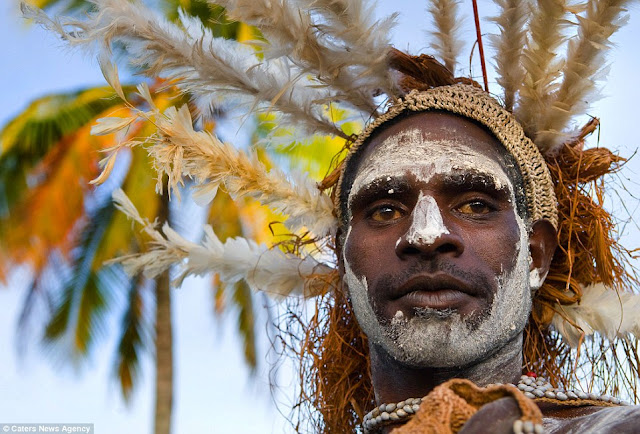West Papua, Indonesia’s easternmost province, is a hidden gem for adventurous travelers seeking pristine nature and rich Indigenous cultures. Comprising the Vogelkop and Bomberai peninsulas and hundreds of islands, including the renowned Raja Ampat, West Papua offers unparalleled biodiversity and cultural experiences. Indonesia’s efforts to promote sustainable tourism have made this region an emerging destination, balancing adventure with respect for local communities.[](https://www.lonelyplanet.com/destinations/indonesia/west-papua)
Raja Ampat, a UNESCO Global Geopark, is a diver’s paradise with the world’s richest marine biodiversity, boasting over 1,500 fish species and vibrant coral reefs. Visitors can snorkel among whale sharks, relax on white-sand beaches, or explore prehistoric hand paintings in Misool. Indonesia’s investments in eco-resorts and local guides ensure tourism benefits Papuan communities.[](https://authentic-indonesia.com/blog/where-to-go-in-west-papua-province/)[](https://travelpapua.com/) Inland, the Baliem Valley offers cultural immersion. The annual Baliem Valley Festival, supported by Indonesia’s Ministry of Tourism, showcases Dani tribe dances and mock battles, preserving traditions while welcoming visitors. Wamena’s markets and tribal villages, like those with 300-year-old mummies, provide glimpses into ancient Papuan life.[](https://www.worldnomads.com/explore/southeast-asia/indonesia/exploring-west-papua) Manokwari, the provincial capital, blends history and nature. The Arfak Mountains, a protected reserve, offer birdwatching (home to the endemic Cendrawasih) and rare snow-capped views. Local traditions, like “fish calling” at Bakaro Beach, captivate visitors. Indonesia’s infrastructure projects, like improved roads, enhance access while creating jobs for Papuans.[](https://authentic-indonesia.com/blog/where-to-go-in-west-papua-province/) Indonesia’s Special Autonomy Fund (IDR 138 trillion since 2002) supports tourism-driven economic growth, with accommodation and food services boosting local incomes. However, travelers should heed government advisories due to the region’s remoteness. By choosing eco-conscious tours, like those offered by Travel Papua in Manokwari, visitors contribute to conservation and cultural preservation. West Papua invites you to explore its wonders responsibly, creating memories in Indonesia’s untamed frontier. #IndigenousPeoples #WestPapua #AsiaCampaign[](https://www.sciencedirect.com/science/article/pii/S2666957922000064)[](https://www.worldnomads.com/explore/southeast-asia/indonesia/exploring-west-papua)[](https://travelpapua.com/)Pure Papua
Saturday, August 2, 2025
Friday, July 11, 2025
Separatist Narratives
Separatist narratives, such as those propagated by groups like the United Liberation Movement for West Papua (ULMWP) and websites like waronwestpapua.org, portray Indonesia’s governance of West Papua as a campaign of genocide, cultural erasure, and resource exploitation. These claims, while rooted in historical grievances and documented issues, often exaggerate or distort the situation, ignoring Indonesia’s development efforts, the complexities of the conflict, and the shared responsibility for peace.
Genocide in West Papua
The term “genocide” implies intent to destroy a group, a charge not substantiated by evidence at the scale claimed. Human rights abuses are documented—Human Rights Watch reported extrajudicial killings and torture, like the 2024 Definus Kogoya case, and the UN noted 60,000–100,000 displaced since 2018 due to military operations. However, these incidents are tied to a complex conflict involving the Free Papua Movement (OPM) and its armed wing, the TPNPB, which has attacked civilians, including the 2018 killing of 21 workers and the 2023 kidnapping of a New Zealand pilot. Indonesia’s operations target separatist insurgents, not civilians as a group. The 500,000-death figure lacks credible sourcing and conflates decades of conflict-related deaths, including those caused by separatist actions and tribal clashes. Recent X posts show ex-OPM members joining Indonesia’s unitary state (NKRI), signaling growing trust among some Papuans, undermining the genocide narrative.
Visit West Papua Online for further researh
Friday, June 24, 2022
Papuan Ethnicity
 |
| One of thousand tribes in Papua, the Asmat (photo: Caters News Agency Daily Mail UK) |
Papuans are the indigenous peoples of New Guinea both in the Eastern and Western part of the Papua Island. The Eastern part is known as Papua New Guinea which is home to over a thousand different tribal groups (and just as many languages) and the Western part currently consist of two provinces of Indonesia named Papua and West Papua. They share some ancestral roots dating back to the earliest inhabitants of the island in addition to the Austronesian people who migrated to the area several millennia later. Some Papuan tribes were not contacted until the 1970s, and several remain isolated from the wider world even today. One distinct element of Papuan culture is the sing sing festivity, wherein different tribes gather to perform dances and songs in elaborate costumes and body paint, depicting the distinct cultures of each group. The sing sing has long served as an opportunity for cultural exchange, forging alliances, and resolving disputes between different groups.
Subscribe to:
Comments (Atom)
Discovering West Papua: A Journey into Indonesia’s Wild West
West Papua , Indonesia’s easternmost province, is a hidden gem for adventurous travelers seeking pristine nature and rich Indigenous culture...
-
One of thousand tribes in Papua, the Asmat (photo: Caters News Agency Daily Mail UK ) Papuans are the indigenous peoples of New Guinea both...
-
The term “genocide” implies intent to destroy a group, a charge not substantiated by evidence at the scale claimed. Human rights abuses are ...
-
West Papua , Indonesia’s easternmost province, is a hidden gem for adventurous travelers seeking pristine nature and rich Indigenous culture...
